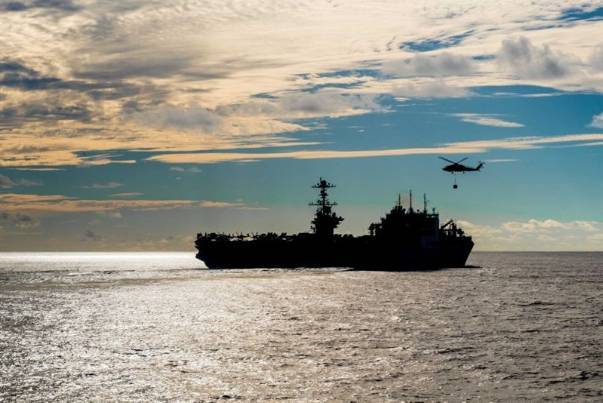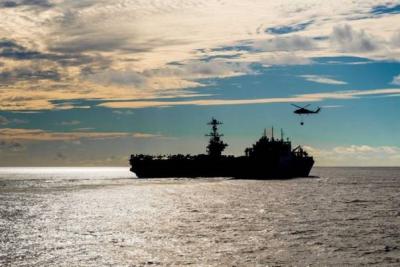British Deputy Prime Minister Oliver Dowden announced on Thursday that the UK will not send ground troops to fight the Houthi movement in Yemen, adding that airstrikes have weakened the Iran-aligned group. The US and the UK have been targeting Houthi positions in Yemen with airstrikes since January, following months of Houthi attacks on commercial and military vessels in the Red Sea. The Houthis state that these attacks, which have disrupted global trade, are in response to Israel's actions against Gaza.
Dowden mentioned during an interview at the British ambassador's residence in Abu Dhabi, "Let's be absolutely clear from the outset. We have no plans whatsoever to send soldiers on the ground." He added that the airstrikes, which have gained some international support, aim to reduce the Houthis' ability to threaten vessels in the Red Sea, not to eliminate the group that has withstood a years-long Saudi bombing campaign.
The increased attacks on shipping in the Red Sea have heightened focus on the Houthis, who seized large parts of Yemen over a decade ago. Many citizens in the Middle East view the Houthis as the only Arab force standing up to Israel. Major shipping routes have largely diverted from passing through the Red Sea, taking longer paths around Africa. This change has increased costs and raised concerns regarding rising global inflation, as well as depriving Egypt of significant foreign revenue it typically earns from shipping traffic through the Suez Canal to the Red Sea or vice versa.
Dowden expressed confidence that military strikes are a step toward reducing the Houthis' ability to threaten the Red Sea and are part of broader measures, including sanctions against group members. He stated, "We need to intensify the pressure on the Houthis because there is a fundamental commitment from the UK to ensure stability and the free trade of goods and movement." He described the wider regional situation as "fragile and dangerous" and urged all parties to exercise restraint.




